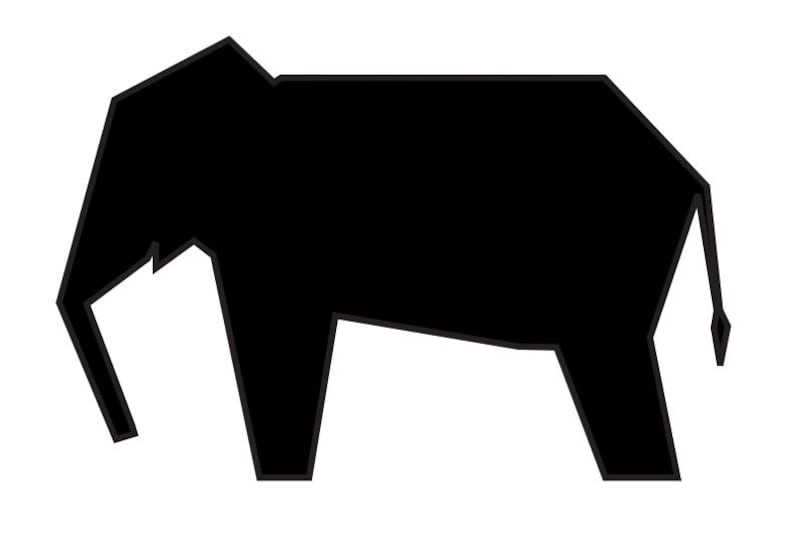Each animal mentioned in the Quran has a role, regardless of size and species. Sometimes they are part of a story and sometimes they are the story, with timeless lessons to be learnt from them.
Some we can only imagine, such as Al Buraq (Lightning), a mythological horse described as a creature from the heavens that transported the Prophet Mohammed during his Ascension or the Night Journey (Israa wal Miraj), which are the two parts of Prophet Mohammed’s journey from Mecca to Jerusalem and back during one night. The five daily prayers for all Muslims were commanded by God during this journey.
After exploring domesticated animals in the Quran in the first part of this series last week, this second part will focus on wild animals.
From elephants of war, the powerful lion and slithering snakes to the hungry wolf and leaping frogs, there’s wisdom in the verses in which they appear.
In the 105th surat (chapter), Al Fil, which is named after the elephant, the verses tell the story of the “people of the elephant” and how a marching army of elephants from Yemen were stopped from destroying the Kaaba, in Mecca, by an army of ababil birds (swallows) with showers of stones that they threw from the skies.
"Have you not considered, [O Mohammed], how your Lord dealt with the companions of the elephant?
“Did He not make their plan into misguidance?
“And He sent against them birds in flocks,
“Striking them with stones of hard clay,
"And He made them like eaten straw."(Quran 105:1-5)
While there are different versions, the most commonly repeated and accepted story behind these verses is that a powerful leader, whose name was Abraha – king of Yemen (which at that time was ruled by the Abyssinians) – wanted to divert pilgrims away from Mecca to his church in Sanaa. He marched on with his army of elephants, but failed in the end. It’s also said that the leader of the elephants stopped at the boundaries of Mecca and refused to march on. Given this event’s significance, it was called the Year of the Elephant, with some scholars equating it to 570, the year Prophet Mohammed is said to have been born.
The significance of this story is how the power of a united front, even if by a flock of birds, could overcome the strongest of animals, such as elephants.
In other verses, using the lion, it illustrates the extent of fear from the truth, that they flee from it and from the remembrance of Allah and the Quran, as if "Fleeing from a lion?" (Quran 74:51).
Then we have the snake. Also known as a serpent, it’s referenced several times in the Quran in connection to Prophet Musa (Moses) and his famous staff.
"And [he was told], 'Throw down your staff.' But when he saw it writhing as if it was a snake, he turned in flight and did not return. [ Allah said], 'O Moses, approach and fear not. Indeed, you are of the secure.'" (Quran 28:31)
The staff turning into a snake was one of Prophet Musa’s miracles, one that has biblical references as well, where the staff was also used to produce water from a rock and in the parting of the Red Sea.
Frogs are mentioned as part of a series of misfortunes sent to the disbelievers of Prophet Musa.
"So We sent upon them the flood and locusts and lice and frogs and blood as distinct signs, but they were arrogant and were a criminal people." (Quran 7:133)
In other instances, the animals make an appearance as part of a Prophet’s story, such as the story of Prophet Yusuf (Joseph), son of Prophet Yaqub, who ends up being betrayed by his brothers because they’re jealous of the closeness between Yusuf and Yaqub.
In the 12th surat, named after Prophet Yusuf, the verses reveal the concerns of the father:
“[Jacob] said, “Indeed, it saddens me that you should take him, and I fear that a wolf would eat him while you are of him unaware.’
"They said, 'If a wolf should eat him while we are a [strong] clan, indeed, we would then be losers.'" (Quran: 12:13-14)
Instead of killing him, the brothers throw Prophet Yusuf into a well, and go back to the father with a lie about a wolf.
“And they came to their father at night, weeping.
“They said, ‘O our father, indeed we went racing each other and left Joseph with our possessions, and a wolf ate him. But you would not believe us, even if we were truthful.’
"And they brought upon his shirt false blood. [Jacob] said, 'Rather, your souls have enticed you to something, so patience is most fitting. And Allah is the one sought for help against that which you describe.'" (Quran 12:16-18)
Not all creatures mentioned are explained, with some remaining a mystery, such as Al Daba, which translates to a beast or creature, and as the verses reveal, will come as one of the signs of the coming of the day of judgement (the end of the world) and will have the ability to speak to humankind.
"And when the word befalls them, We will bring forth for them a creature from the Earth speaking to them, [saying] that the people were, of Our verses, not certain [in faith]." (Quran 27:82)
Whether feared or revered, the role that wild animals play in relaying messages and lessons remains profound and timeless, with a new generations of Muslims rediscovering them each time they read the Quran.
All Quranic verses in English are from the Sahih International translation.
Next week, we look at the insects of the Quran. You can read last week's feature on domesticated animals here
rghazal@thenational.ae





